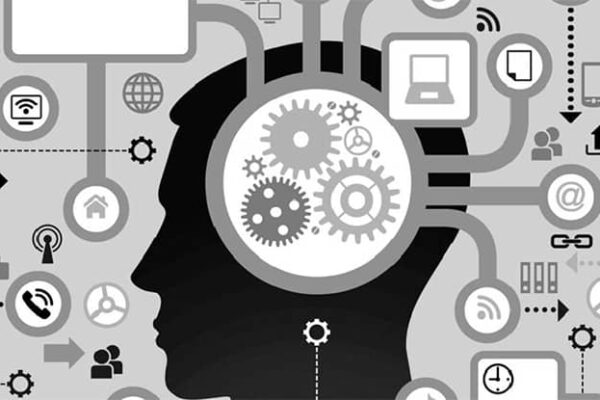Doxing is the act of searching for and publishing personal information about individuals on the internet without their consent. Such information may include full names, home addresses, phone numbers, email addresses, photos, job details, and other personal data.
The motives behind doxing can vary: from the desire to inflict psychological harm, blackmail, and discredit someone, to the goal of mobilizing public opinion against a particular person. This practice is considered a form of cyberbullying and violates personal privacy, exposing the target to unwanted attention, harassment, and even physical threats.
The relevance of doxing in today’s digital community is driven by the growing role of the internet in our daily lives and the increasing amount of data available online. With the rise of social networks, blogs, and forums where users share personal information, the opportunities for doxing have expanded significantly. At the same time, the increasing reliance on the internet for work, communication, and entertainment has heightened the risks of unauthorized use of personal data.
Doxing threatens not only the personal safety and privacy of victims but also undermines trust in the digital space as a safe environment for communication and self-expression. This creates a need for effective methods of protecting personal data and educating users about the risks associated with their online activities. In this context, understanding the nature and consequences of doxing becomes an important aspect of ensuring cybersecurity and protecting human rights in the digital age.

Psychological Motives Behind Doxing
In their attempts to unravel the mysteries of human behavior, researchers often face the dilemma of understanding the motives behind certain actions. Doxing, as a form of cyberaggression, is no exception. Each case of doxing involves a person (the doxer) driven by specific psychological motives, which may be hidden or apparent, rational or irrational. Understanding these motives requires a deep dive into psychological analysis to uncover what drives individuals to engage in such actions.
In a world where the lines between the real and virtual realms are becoming increasingly blurred and personal information is more accessible than ever, the motives for doxing can range from the desire to cause harm to the quest for social recognition. A comprehensive study of these motives not only reveals the psychological aspects of doxing but also provides valuable insights for developing strategies to counter and prevent such attacks in the future.
Understanding the psychological foundations behind doxing touches on broader social issues, including the impact of anonymity on the internet, group dynamics, and the evolution of the concept of privacy in the digital age. This research not only exposes the hidden incentives for such aggressive behavior online but also offers important directions for developing measures to prevent and mitigate its negative impact on society.
The Desire for Revenge
The desire for revenge is one of the key motives behind doxing. This motive often stems from a sense of injustice or resentment, where the doxer seeks to “restore justice” or retaliate for something. In such cases, doxing becomes a form of vigilantism, where the avenger hopes to harm the target by revealing their personal information without consent. This can be a reaction to an online conflict, a misunderstanding, or even a response to real or imagined grievances offline.
Such behavior is often rooted in deep psychological processes related to one’s perception of identity and status within a group or society. Revenge through doxing gives the doxer a sense of power and control, especially in situations where direct interaction or more traditional conflict resolution methods are impossible or seem ineffective. However, these actions not only harm the target but also undermine the foundation of social trust and safety in the digital space, creating an atmosphere of fear and suspicion.
The Pursuit of Social Recognition
The pursuit of social recognition is another significant motive for doxing, especially within the context of online communities and social networks. In the digital age, where social status and recognition can be quickly amplified through the internet, some individuals resort to doxing as a way to draw attention to themselves, gain approval, or even admiration from their online peers.
These actions often take place in environments where aggressive behavior or the disclosure of others’ secrets is valued and seen as a display of strength, skill, or influence within a particular group. Individuals seeking social recognition through doxing may justify their actions by aligning with the collective norms of the group in which they aim to rise in status.
This motive often correlates with the desire to be seen and valued as an important member of the community, but such a method of achieving recognition can have serious ethical and moral consequences. It not only violates the privacy and safety of the victim but also fosters a toxic atmosphere in the online space, where harmful behavior at the expense of others is tolerated and even encouraged.
The Desire to Control or Manipulate
The desire to control or manipulate others is another motive underlying doxing. This motive may stem from a desire to establish dominance or power over the victim, using the threat of revealing personal information as a means of pressure and control. Doxing, in this context, becomes a tool through which the perpetrator attempts to restrict the victim’s freedom, force them to follow certain instructions, or prevent unwanted behavior.
Such use of doxing can be aimed at various goals, including suppressing expressions or actions that the perpetrator perceives as threatening to their interests or views. In some cases, this desire for manipulation may be driven by personal conflicts, professional competition, or the desire for revenge over real or imagined wrongs.
Manipulating through doxing highlights aspects of power and control in interpersonal relationships in the digital age, especially considering that access to personal information can become a powerful weapon in the hands of a perpetrator.
This not only violates the victim’s rights to privacy and safety but also causes long-term psychological trauma, fear, and a sense of vulnerability, undermining the foundation of trust and security in society. Therefore, understanding and counteracting such motives behind doxing are important aspects of protecting personal information and ensuring online safety.
The Psychological Profile of a Typical Doxer
Research in the field of cyberpsychology highlights several common traits that may be characteristic of a typical doxer:
- Tendency toward aggression and hostility: A doxer may exhibit high levels of aggression and hostility online, using it as a means of expressing dissatisfaction or achieving goals through intimidation and control.
- Low empathy: Doxers often display a low level of empathy toward their victims, ignoring the emotional harm they may cause.
- Narcissistic traits: In some cases, doxers may suffer from narcissistic personality disorder, seeking attention, admiration, and asserting dominance within social groups.
- Sense of anonymity and impunity: Anonymity on the internet contributes to a sense of impunity, increasing the likelihood of aggressive or harmful actions, as doxers understand there is little chance of being caught or punished.
- Tendency toward conformity: In some cases, a doxer may experience group pressure or a desire to conform to the norms and expectations of a particular online community or social group.
- Interpersonal relationship issues: Doxers often struggle with interpersonal communication and prefer anonymous online interactions, which fosters doxing as a form of self-expression or manipulation.
- Sense of injustice or resentment: Personal grievances or a subjective sense of injustice may drive doxers to commit violations as a way to restore fairness or seek revenge.
It’s important to note that not every doxer will fit all these descriptions, and motives can vary significantly depending on the context and personal circumstances.
The Impact of Social Networks and Internet Anonymity on the Spread of Doxing
Social networks and internet anonymity play a significant role in the spread of doxing by creating conditions that facilitate and encourage such actions.
The Influence of Social Networks
- Simplified access to personal information: Social networks are a rich source of personal information, where users often share their data without realizing the potential risks. This makes the process of gathering information for doxing less challenging.
- Accelerated dissemination of information: Social networks allow information to spread at an incredible speed. This means that once personal data is published, it can instantly reach a massive audience.
- Creation of echo chambers: Groups and communities in social networks can act as echo chambers, amplifying extreme views and behaviors, including the approval or even encouragement of doxing.
The Influence of Internet Anonymity
- Sense of impunity: Anonymity can create the illusion of no consequences for perpetrators, as they feel protected from direct identification and accountability.
- Lack of social restraint: In conditions of anonymity, it is easier for people to violate social norms and ethical principles they would typically follow offline.
- Deindividuation: Anonymity can contribute to the process of deindividuation, where individuals lose their sense of personal identity and become more susceptible to groupthink and actions.
Together, these factors create an environment where doxing not only becomes possible but is encouraged or exacerbated through social approval in certain online communities.

Psychological Consequences of Doxing for Victims
The psychological harm caused by doxing can sometimes be compared to physical violence, as it strikes the most vulnerable aspects of human psyche—feelings of safety, trust in others, and self-perception in society.
Victims of doxing face not only the immediate consequences of their personal information being revealed, but also long-term psychological effects. These consequences can encompass a wide range of emotional reactions and affect various aspects of life, from interpersonal relationships to professional activities.
An analysis of the psychological consequences of doxing provides an important perspective on the depth of harm that can be inflicted by digital violence. This knowledge is essential for developing strategies to protect individuals in an increasingly integrated digital society.
Stress and Anxiety
Stress and anxiety are some of the most immediate and widespread psychological consequences faced by victims of doxing. Once a person’s private information becomes publicly available without their consent, there is a sense of losing control over their own life, which can trigger intense stress and anxiety. These emotional reactions are tied to the fear of unpredictable consequences from the information disclosure, including the possibility of harassment, threats to safety, or damage to reputation.
Stress and anxiety related to doxing manifest in various ways. Victims may experience insomnia, concentration problems, mood swings, and even somatic symptoms such as headaches or a racing heartbeat. Emotional tension can also impact daily life, making it difficult to work, study, or maintain relationships with loved ones.
Moreover, prolonged stress and anxiety can lead to the development of more severe psychological problems, such as depression or post-traumatic stress disorder (PTSD).
Fear and Vulnerability
Fear and a sense of vulnerability are also deep psychological consequences faced by victims of doxing. The exposure of personal information without a person’s consent undermines their sense of security and can provoke fear of physical, emotional, and social threats. This fear may be linked to potential actions from malicious individuals, such as stalking, threats, or further dissemination of compromising information.
The sense of vulnerability is intensified by the realization that one’s personal life has become the subject of public discussion and judgment. Doxing victims often feel helpless and isolated, as their privacy has been breached so severely that regaining control seems impossible. This can lead to a reduction in social interactions and withdrawal from public life in an attempt to protect their mental health from further harm.
Post-Traumatic Stress Disorder (PTSD)
Post-traumatic stress disorder (PTSD) can be one of the long-term psychological consequences of doxing for victims, especially if they have been subjected to intense harassment, threats, or other forms of aggression as a result of their personal information being revealed. PTSD is a serious condition that can develop after experiencing or witnessing events that threaten a person’s life or safety, including situations that provoke strong fear, horror, or helplessness.
PTSD can be triggered not only by the initial act of information disclosure but also by the prolonged sense of threat and uncertainty regarding the potential consequences for personal life and safety. The constant fear of further attacks from the doxer or continued dissemination of the information exacerbates the trauma, making recovery more challenging.
Treatment for PTSD usually involves psychotherapy, such as cognitive-behavioral therapy, and in some cases, medication to alleviate symptoms. Social support from friends, family, and a psychologist is also crucial in helping victims overcome the trauma and restore their sense of security.
Trust Issues and Social Isolation
Trust issues and social isolation can become significant and long-lasting psychological consequences of doxing for victims. These problems arise from the breach of personal boundaries and security caused by the disclosure of private information. Such intrusion can severely undermine the victim’s trust, not only in the individuals behind the act of doxing but also in a broader circle of acquaintances, friends, and even loved ones.
Trust Issues
After experiencing doxing, victims may begin to view the world as a more hostile and dangerous place, leading to increased suspicion and caution in interpersonal relationships. They may struggle to form new connections or maintain existing relationships due to the fear of being betrayed again. This sense of vulnerability can make the victim avoid situations that require openness and trust, thereby limiting their ability to build deep and meaningful relationships.
Social Isolation
Social isolation can result from, or be a response to, the loss of trust. Doxing victims may deliberately withdraw from social life in order to protect themselves from further harm. They may feel misunderstood or fear that their experiences will not be taken seriously enough. In some cases, the stigma associated with being a victim of doxing leads to additional social alienation, both from others and the victim themselves.
Importance of Support and Social Interaction
To overcome trust issues and social isolation, it is essential for doxing victims to receive support and understanding from those around them. Professional psychological counseling helps rebuild trust in others and reduce feelings of isolation. Support groups and communities where people with similar experiences can share their stories and coping strategies can also provide significant help during the recovery process. Creating a safe space for expressing feelings and discussing the experience is important for restoring social connections and a sense of belonging.
Impact on Self-Esteem and Personal Development
The impact of doxing on victims’ self-esteem and personal development can be profound and multifaceted. The breach of personal privacy and the ensuing feelings of vulnerability and helplessness can severely undermine a victim’s sense of self-worth and self-respect. Victims may begin to doubt their ability to protect themselves and their information, leading to a decline in self-esteem. This can affect not only personal but also professional aspects of life, impacting work performance and ambitions.
Impact on Self-Esteem
Self-esteem is the evaluation of one’s own significance and competence in various areas of life. Doxing can cause the victim to feel incapable of controlling their own life and protecting their privacy, directly affecting their self-esteem. Victims may feel ashamed that their personal information has become public, further intensifying feelings of inadequacy.
Impact on Personal Development
Personal development encompasses processes of self-awareness, self-realization, and the pursuit of personal growth. Doxing can significantly slow down or even halt these processes, as the victim may be overwhelmed by feelings of fear, anxiety, and vulnerability. Reflecting on what has happened and its consequences can distract from personal growth and self-realization, while fear of further actions by the doxer may limit the victim’s willingness to take on new challenges and opportunities.
Paths to Recovery
To restore self-esteem and continue personal development after doxing, support—both emotional and professional—is crucial. Working with a psychotherapist helps victims reframe their experience, restore lost self-esteem, and continue their personal growth. It is also important to create a safe space for communication, where victims can express their feelings and thoughts without fear of judgment.

Social and Psychological Aspects of Doxing
Doxing raises questions about the nature of human interaction on the internet, as well as how anonymity and the availability of information influence our behavior and perception of safety. In this context, understanding the social and psychological consequences of doxing becomes key to comprehending its impact on individuals and society as a whole.
This phenomenon affects not only the victims of doxing but also the doxers and the broader audience of onlookers. It highlights complex issues related to ethics, morality, and responsibility in the online space. How society reacts to doxing, what measures are taken to prevent and combat it, and how these actions reflect on our social norms and values—all of this becomes a subject of deep analysis within the study of the social and psychological aspects of doxing.
Additionally, reflections on the social and psychological consequences of doxing open up discussions about the future of digital ethics and how technology is changing the ways we interact, providing new tools for influence and manipulation. In this light, understanding and analyzing the social dynamics and psychological mechanisms underlying doxing represent a necessary step toward creating a safer and fairer digital space.
The Impact of Doxing on Society and Social Norms
Doxing has a significant impact on society and social norms, causing notable shifts in the perception of privacy, security, and interpersonal relationships in the digital space. This phenomenon not only highlights vulnerabilities related to online presence but also sparks broader discussions about the boundaries of personal life and ethics on the internet.
Doxing demonstrates how easily personal information can be revealed and used against an individual, leading to growing concerns about online privacy. Over time, this could lead to changes in social norms regarding what is acceptable to share online and how we protect our personal information.
The spread of doxing undermines public trust both in individuals and societal institutions. Fear of potential doxing may cause people to limit their participation in online discussions and social networks, reducing openness and the exchange of opinions, which are fundamental to a democratic society.
Doxing also prompts a reevaluation of online behavior norms and issues of responsibility. It underscores the need to develop a culture of respect and ethics in the online space, where anonymity and remote interaction do not serve as justification for harmful actions.
As awareness of the dangers of doxing increases, so do calls for stricter legislative measures and privacy policies to protect personal information. This includes the development of new laws regulating the dissemination of private information without consent, as well as increased accountability for social networks and platforms in safeguarding user data.
Raising awareness about doxing and its consequences contributes to growing social understanding of the need for cyber hygiene and personal data protection. Educational programs and awareness campaigns play a key role in fostering safer online behavior and culture.
Overall, doxing acts as a catalyst for reevaluating and reshaping social norms and expectations regarding online privacy, security, and digital ethics, requiring active efforts from society to create a safer and more respectful online environment for all.
The Role of Online Communities in the Spread and Prevention of Doxing
Online communities play a dual role in the context of doxing, contributing to both its spread and its prevention. On the one hand, some online communities may support doxing, using it as a tool to achieve their goals or as a form of punishment for those who come into conflict with them. On the other hand, many communities actively oppose doxing, developing strategies for protection and support for victims, as well as fostering norms that condemn and prevent such behavior.
In some cases, online communities can become echo chambers, amplifying aggressive or hostile views. In this atmosphere, doxing is often presented as an acceptable means to achieve “justice” or as a way to fight opponents. The anonymity provided by many platforms can further contribute to the spread of doxing, as community members feel less personally responsible for their actions.
On the other hand, many online communities actively work to create a safe space, condemning doxing and providing resources and support for its victims. These communities may include forums, social media groups, and organizations focused on digital rights and security. They develop guidelines for cybersecurity, conduct educational campaigns, and offer platforms for discussing and sharing information on how to avoid doxing or deal with its consequences.
Additionally, online communities play a key role in shaping public norms and values regarding doxing. Actively condemning it and supporting victims in the online space contributes to creating a culture in which such behavior is seen as unacceptable and contradictory to the principles of mutual respect and ethics. Discussing the harm caused by doxing and developing codes of conduct for community members promote increased awareness and responsibility in the digital world.
Psychological Mechanisms of Group Identification and the “Bystander Effect”
The psychological mechanisms of group identification and the “bystander effect” play a significant role in the context of doxing, influencing the behavior of both members of online communities and the general public who witness such incidents.
Group Identification
Group identification refers to the process by which individuals define themselves as part of a particular group, adopting its norms, values, and behaviors. In the context of online communities, this can lead individuals to be more likely to engage in or support actions such as doxing if they perceive them as aligned with the group’s norms or goals. Group identification can strengthen the sense of anonymity and reduce the feeling of personal responsibility, making it easier to accept or justify aggressive actions against external “enemies” or opponents of the group.
The Bystander Effect
The “bystander effect” describes a phenomenon in which people are less likely to offer help or intervene in a situation when they are in a group or witness someone’s distress in the presence of others. In the context of doxing, this can lead online communities or individual users to refrain from condemning the actions of a doxer or offering support to the victim, assuming that someone else will take the necessary steps or that their intervention will not make a difference. This effect can also be exacerbated by the anonymity of the internet, which reduces the sense of immediate “presence” and personal responsibility.
Both of these psychological mechanisms can contribute to creating an environment where doxing is not only possible but may be socially tolerated or even encouraged in some online communities. However, understanding these mechanisms can also aid in developing strategies to counteract doxing, such as through the formation and reinforcement of group norms that condemn such behavior, and through fostering a culture of active intervention and victim support, countering the “bystander effect.”

How to Protect Yourself from Doxxing
To protect yourself from doxxing and other digital security threats, it’s important to follow several general recommendations. These measures will help reduce the risk of unwanted disclosure of personal information and improve your overall online security:
- Strong, unique passwords. For each account, create a unique password consisting of a combination of letters, numbers, and special characters. It’s recommended to use password managers to store and generate them.
- Two-factor authentication (2FA). Enable two-factor authentication on all available services. This adds an extra layer of security that requires login confirmation through an additional device or app.
- Privacy settings. Regularly review and adjust privacy settings on all your social media accounts and other online platforms to understand what information is publicly accessible.
- Phishing and fraud. Be alert to phishing attempts and fraud. Don’t click on suspicious links or enter personal information on dubious websites.
- VPN. Use a virtual private network (VPN) to help protect your anonymity online by encrypting your traffic and hiding your IP address.
- Software updates. Ensure that your operating system and all applications on your devices are up to date, as updates often include security vulnerability fixes.
- Sharing personal information. Be cautious when sharing personal information online. Avoid posting data that could be used to identify you or be used against you.
- Account activity. Regularly check the activity logs of your online accounts for any unusual actions that might indicate unauthorized access.
- Education and awareness. Continuously improve your cybersecurity knowledge, stay aware of emerging threats, and learn new prevention methods.
By following these recommendations, you’ll significantly reduce the risk of becoming a victim of doxxing or other types of cyber threats, while also strengthening your overall digital security.
Tips for Strengthening Psychological Resilience
Building psychological resilience is a key aspect of overcoming the negative consequences of doxxing and other stressful life events. Psychological resilience helps you adapt to challenging circumstances, maintain a positive outlook, and recover from hardships. Here’s how to strengthen it:
- Develop positive thinking. Focus on the positive aspects of your life and practice gratitude. Positive thinking helps combat stress and view challenges as opportunities for growth.
- Set realistic goals. Set achievable goals and break them down into small steps. Achieving these goals gradually boosts your self-confidence and your ability to overcome difficulties.
- Develop problem-solving skills. Learning problem-solving techniques will help you adapt to changes and find effective ways to overcome obstacles.
- Manage stress. Master relaxation techniques such as breathing exercises, meditation, or yoga to reduce stress and anxiety.
- Maintain social connections. Keep close and trusting relationships with family, friends, and colleagues. Social support is an important factor in psychological resilience.
- Embrace change. Be open to change and ready to accept unforeseen circumstances. Flexibility helps you adapt more easily to new situations.
- Increase self-efficacy. Believe in your ability to overcome obstacles. Successfully facing challenges strengthens your belief in yourself and your resources.
- Take care of yourself. Don’t forget about physical and emotional self-care. Proper nutrition, regular exercise, and adequate sleep will strengthen both your physical and psychological resilience.
- Find meaning. Seek meaning in the challenges you’ve faced, and learn from difficult situations. This will help you grow and develop, despite obstacles.
By following these tips, you’ll not only strengthen your psychological resilience but also improve your overall quality of life, becoming more flexible and adaptive in any situation.

Recommended Literature
Unfortunately, there aren’t many books entirely dedicated to the topic of doxxing. However, here are some books that touch on this issue within the broader discussions of cybersecurity, privacy, and internet culture:
1. “Cybersecurity and Cyberwar: What Everyone Needs to Know” – by P.W. Singer and Allan Friedman.
- This book provides a broad overview of cybersecurity, including topics like privacy, cyber warfare, and cybercrime. While doxxing isn’t the main focus, the book helps understand the context in which such actions occur.
2. “Hate Crimes in Cyberspace” – by Danielle Keats Citron.
- Danielle Keats Citron explores the problems of online harassment, including doxxing as a form of cybercrime. The book offers an analysis of the problem and potential solutions for fighting hate on the internet.
3. “Data and Goliath: The Hidden Battles to Collect Your Data and Control Your World” – by Bruce Schneier.
- In this book, Bruce Schneier delves deeply into data collection, surveillance, and privacy issues in the digital age. Although it’s not exclusively focused on doxxing, the book sheds light on many aspects related to personal information leaks and online privacy.
4. “So You’ve Been Publicly Shamed” – by Jon Ronson.
- In his book, Jon Ronson explores the consequences of public shaming on the internet, including cases where doxxing becomes part of a larger campaign to discredit a person. The book provides a fascinating analysis of the social mechanisms behind online shaming and its impact on victims.




